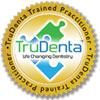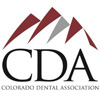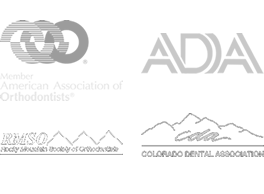Temporomandibular joint (TMJ) and muscle ailments commonly known as temporomandibular joint disorder (TMD) are a group of conditions that cause pain and dysfunction in the jaw joint and the muscles that control jaw movement. For most people, pain in the area of the jaw does not signal a long-lasting problem. The discomfort in these cases is infrequent and temporary. Eventually the pain goes away with little or no treatment. In other instances, however, TMJ pain is a serious health concern that can turn into a debilitating condition if it is not effectively treated. Let’s take a closer look at some the causes of TMJ dysfunction.
Trauma
Trauma in this case is divided into macrotrauma and microtrauma. Macrotrauma means injury from outside, for example a punch to the jaw or an accident. This can cause dislocation of the jawbone, break the jawbone or even damage the cartilage disc of the joint. Obviously, any of these occurrences will cause pain in the TMJ and the treatment for each is fairly straightforward.
Microtrauma, on the other hand, is internal. For instance, habitual jaw clenching and teeth grinding can lead to TMJ pain. This continuous hammering on the temporomandibular joint can alter the teeth alignment. The involvement of the muscle may cause inflammation of the membranes surrounding the joint. Teeth grinding (bruxism), as a habit, can lead to muscle spasm and inflammatory reactions. Changes in the height of teeth, changes in the chewing muscles and misalignment of teeth may cause TMJ pain.
Therefore, if you have a habit of grinding teeth or jaw clenching, it is important to address the behaviors as they can lead to TMJ pain and frequently TMD. Generally, an individual who has a teeth grinding habit will do so mostly while asleep. A dental professional can address the clenching and grinding, while a specially trained neuromuscular dentist can treat the TMJ issues that have come about as a result.
Osteoarthritis
Just like other joints in the human body, the jaw joint can experience arthritic changes. Such changes can be caused by breakdown of the joint or aging. It is essential to highlight that degenerative joint disorder causes slow and progressive loss of cartilage. The prevalence of this disorder increases repetitive microtrauma, leading to TMJ pain. Cartilage destruction can also be the result of several mechanical and biological factors. It is essential to identify the cause of TMD before trying to treat it.
Rheumatoid arthritis
Rheumatoid arthritis (RA) is known to be the leading cause of inflammation in the joints and can also cause TMJ pain. If it goes untreated, RA can destroy the cartilage and even erode bone, deforming the joints. If not treated in time, RA may cause persistent joint inflammation, including the TMJ which leads to TMD. Keep in mind that RA is an autoimmune disease. If you have this condition it is important to seek specialized treatment for your TMJ pain from a rheumatologist or autoimmune disease expert.
In summary, TMJ pain can be caused internally or externally. Fortunately, the problem can be treated. If you are experiencing pain in your jaw, getting popping or clicking sounds when you open and close your mouth, or are experiencing chronic headaches and migraines that don’t respond to treatment, you may be dealing with the consequences of TMD.
Fort Collins Headache Center uses a breakthrough, FDA approved treatment called TruDenta to correct problems with the TMJ and provide relief. Book a consultation exam with Dr. Jared Ward today to see if you are a candidate for our cutting-edge therapy. If you are, we will create a treatment plan for you that will have you symptom free with just 12 or fewer weekly visits. Call Fort Collins Headache Center at 970-672-8517 or use the contact form on this page. We look forward to hearing from you.

























